Tobago’s youngest chicken farmer
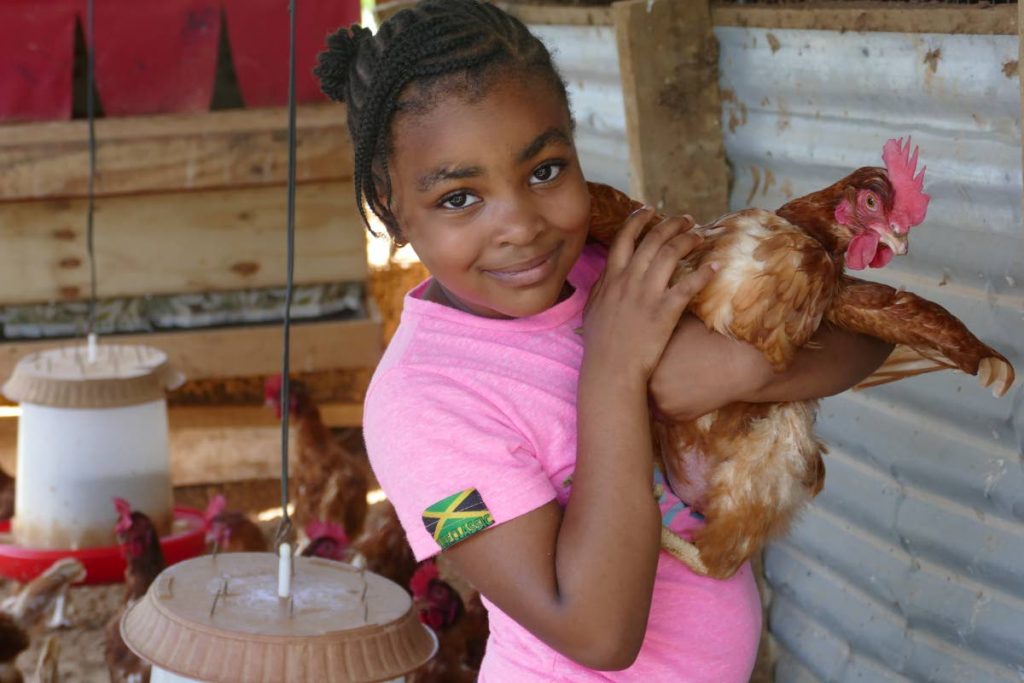
ONE of Tobago’s best-kept secrets (until now) is a compact but spacious rustic wooden structure, perched on a breezy Charlotteville hilltop, with a commanding view of the village, the ocean and the seemingly never-ending horizon.
Sorry to disappoint those who were starting to fantasise about booking this accommodation for their next Tobago vacation, but this is no Airbnb; it is the simple but impressive chicken pen at “family-owned, family grown” (their motto) Kaizz Poultry Farm.
“The chickens have the best view in the house,” Jamaican-born government vet Dr Annika Gordon-Dillon says with a laugh.
The chicken pens, behind the house, were designed by Gordon-Dillon’s husband Kechen Dillon, aka “Mr Handyman,” much-loved primary-school teacher and mentor to many children in Charlotteville.
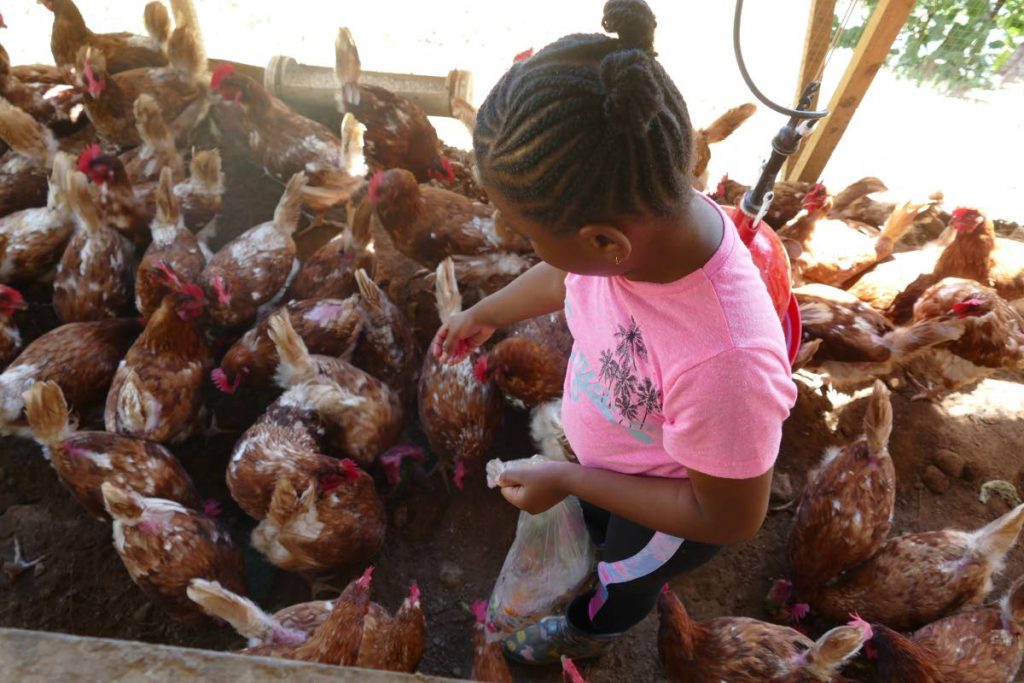
They were built with help from his childhood friends in the community. The pens, with their roll-away nest boxes (designed to prevent breakage and faecal contamination and make egg collection easier), are works of art. What chicken would not want to live and lay eggs in this veritable penthouse suite with its panoramic ocean view?
The Dillons founded the farm in 2020, creating its name by merging the names of their two children, five-year-old Kaija (a Hebrew name meaning “life”) and two-year-old Zakii (an Arabic name meaning pure”). Inspired by their children, for whom it was created, the farm is intended as a profitable and reliable family business that will continue to lay financial eggs for and into the children’s future. All earnings from the business are fostered for the children, and their parents hope that when they are older they will be interested in taking over the business and continuing to develop it in a meaningful way.
The decision to be more health-conscious as a family also fuelled the genesis of Kaizz. Gordon-Dillon explains, “My husband and I started to exercise and make healthier food choices. We decided to start by eating what we grew and began growing our own vegetables and raising our own chicken for meals.” The family subsequently decided to use the pen space for layers, so that they could have their own eggs and possibly also supply the Charlotteville community. The demand was high and before they knew it, they had built their second pen and received another batch of layers.
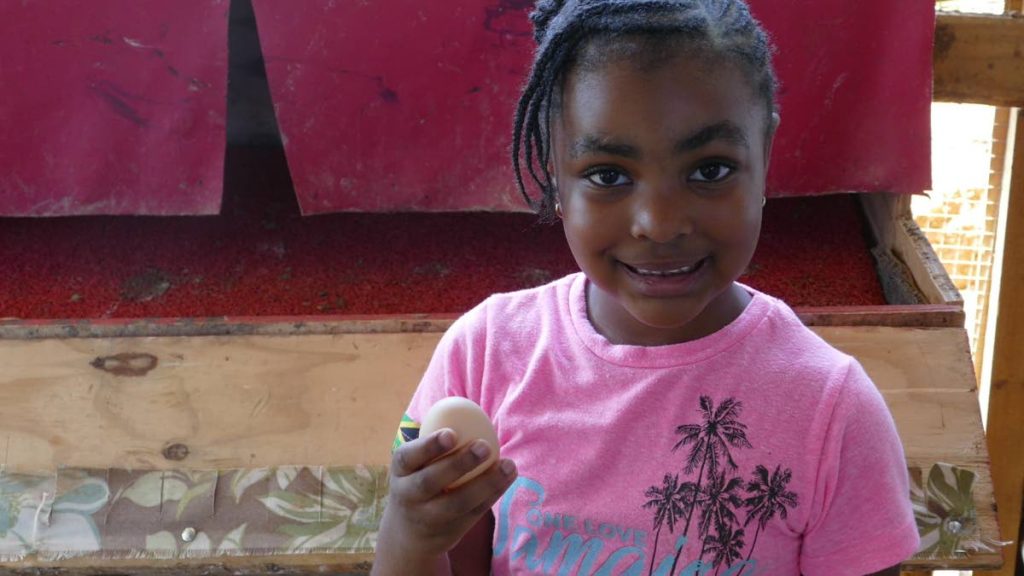
Tending to the chicken farm is a family affair, with everyone playing an important role. As a vet, Gordon-Dillon ensures everything is in place for success of the flock; she examines the birds before they arrive and continually monitors them during their brooding period and beyond. Protocols are developed, keeping in mind the type of layers and the climate. The flock is observed regularly and managed medically when necessary.
“My presence ensures healthy hens and maximum production,” Gordon-Dillon (“Mummy”) says.
Meanwhile, “Daddy” offers leadership and guidance, handles the book-keeping for the business and tends to the farm early every morning. A family friend helps him with labour-intensive chores (like changing litter and filling feed bins) and his mother, Voy Dillon, helps with sorting, sanitising and packing eggs.
But one of his most active farmhands is five-year old Kaija (who wants to become a vet, like her mother).
She was only too happy to be interviewed before giving a tour of the pens.
What do you like best about the chicken farm?
I like hugging the chickens. Their feathers are so soft.
Do you have names for any of them?
Marshmallow, Vanilla, Henny, Princess C.
How do you help your daddy in the pen?
I help Daddy feed the chickens and I look around and show him when one is sick.
I help pick up the eggs by lifting the cover of the rollaway box and placing the eggs gently in the bucket.
What do you feed the chickens?
I look for leaves in the grass and also give watergrass, banana leaves, vegetables. When we eat fruits, the skin goes in the freezer and when chickens are ready for the fruits we spread it out for them.
They eat bananas, broccoli, lettuce, cucumber, ground provision, melon, pumpkin.
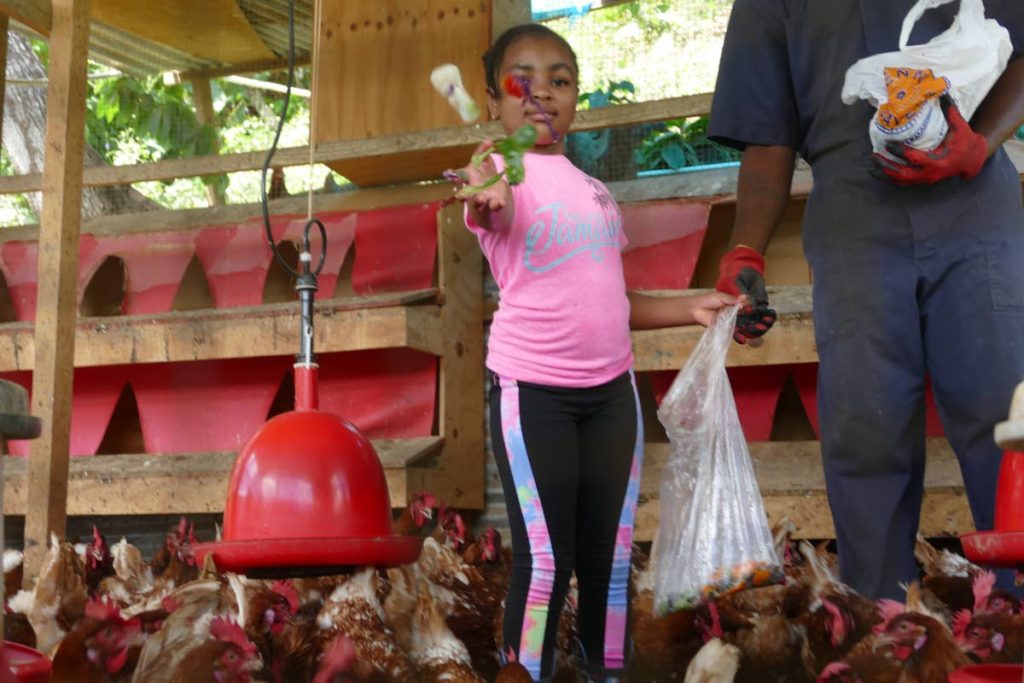
Do you eat a lot of eggs?
I eat the most eggs in the house. My favourite recipe is the one with the melted cheese.
What is the difference between your eggs and other eggs?
Ours are bigger.
(“We tend to get larger eggs, especially when giving the chickens vegetables and natural oils like olive, soya bean and cod liver,” her mother explains.)
Does your brother help?
He likes to play in the dirt! Most of the time he brings up a toy Ranger.
He has cracked so many eggs. He smashed a crate of eggs with his toy Ranger!
Her mother laughs.
“When he was younger he used to cry when the chickens came towards him, but now he is okay. And when Kaija was younger she used to run away and we would find her in the pen with the baby chicks.”
“They are so feathery and cute,” the five-year old future vet says fondly.
Kaizz Poultry Farm targets customers interested in wholesale eggs, such as restaurants, mini-marts and groceries, hotels and guesthouses, bakeries and specialised bakers. It delivers free of charge in Tobago.
“We have been blessed to get support from all the groups,” Gordon-Dillon says. “We are especially grateful to the mini-marts and groceries that have our products on the shelf so that we can reach the customer that would have otherwise been hard to reach.
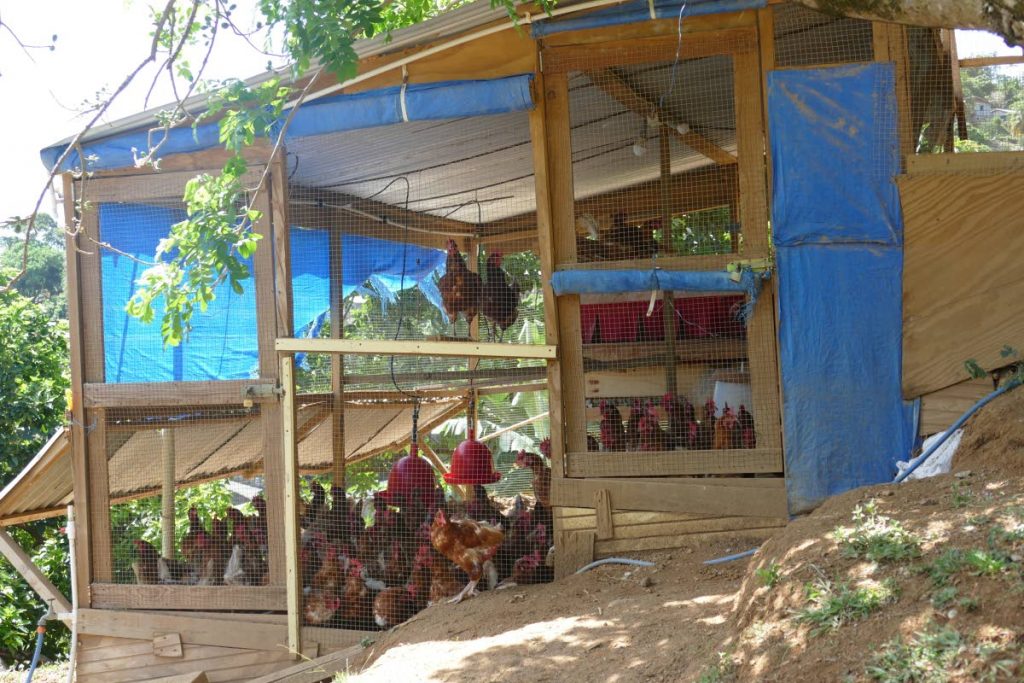
“The restaurants and bakers that have supported us so far, every week without fail, they keep us going.
“There are also faithful customers in Charlotteville and other villages that cannot go unmentioned.
“We have been recommended to many because of the clean, quality eggs we offer, so we rely heavily on recommendations and customer satisfaction.”

Comments
"Tobago’s youngest chicken farmer"